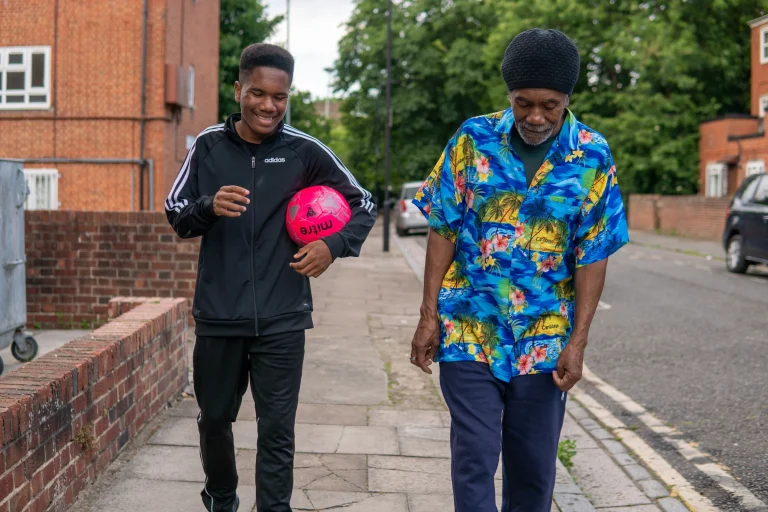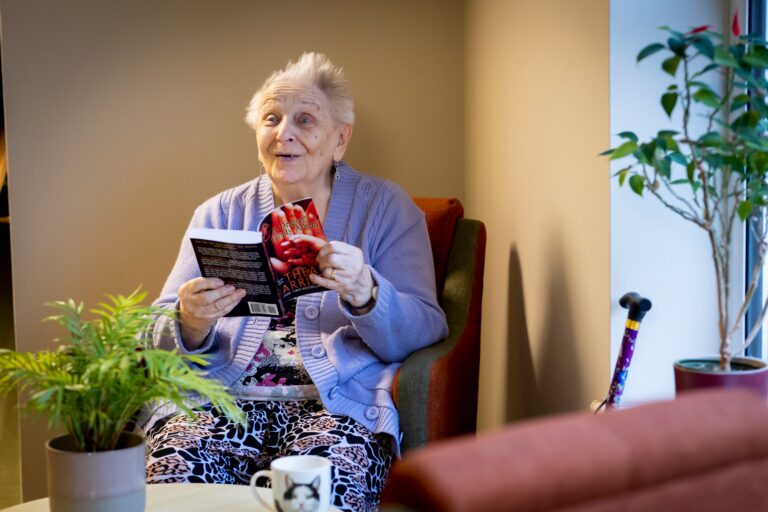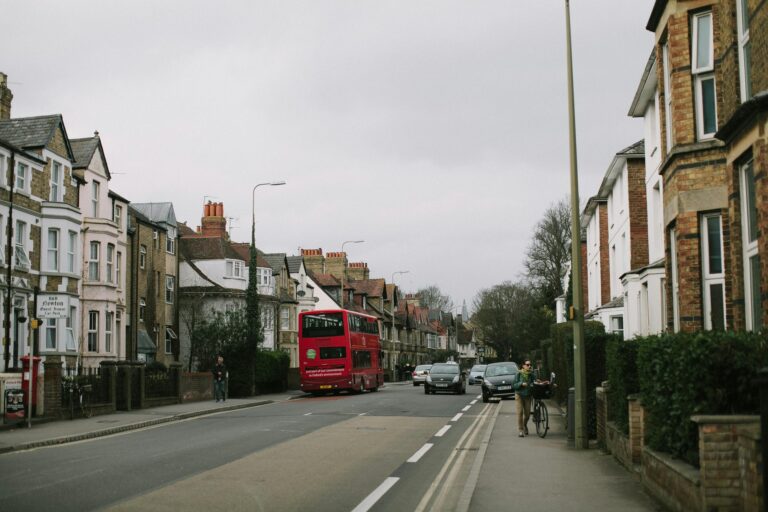When a hot British summer arrives, many of us get excited, with thoughts of fun in the sun. However, for some people, carrying on with daily routines can be quite a struggle in warm/hot weather. People with chronic illnesses such as dementia and Alzheimer’s, face greater challenges. Hot weather puts them at risk of dehydration which can cause confusion, heat stroke or sunburn. If you are caring for someone with dementia, here are some key points to consider keeping them safe and more comfortable during hot temperatures.

Top 5 tips
1. Avoid the heat & hottest part of the day
Did you know the sun is at its hottest between 11am and 3pm? Encourage people living with dementia to stay inside and avoid direct sunlight if possible. If not, plan any outdoor activities to occur either early in the morning or when the sun starts to set. To avoid the heat, look to visit spaces that are air-conditioned, such as shopping centres, supermarkets, day centres, cafes, etc.
If the person you care for, needs to go out, then ask them to stay in shaded areas when moving around outdoors. Ensure they carry bottles of water for drinking when on the move.
If travelling by car, put the air conditioner on. If there is no air conditioner, make sure that the car fan is on a cool air setting.
2. Dress for the weather
Put out loose, light-coloured, clothing (such as linen, cotton) for the person you care for to wear in the morning. Include shirts/tops with long sleeves, long trousers or skirts and socks. Avoid dark coloured clothing which absorbs heat.
Provide a lightweight, broad-brimmed hat for staying cool and to avoid the sun. Offer sunglasses to protect their eyes. Remember to cover any exposed skin with a good sunscreen lotion/spray that has a high sun protection factor (SPF) of 30 or higher.
3. Stay Hydrated
People with dementia need to drink plenty of cool water throughout the day They can forget to drink enough fluids, and should they become overheated, it may lead to higher levels of confusion. Set electronic reminders to help with this. Have jugs of water or squash available in the main rooms. Encourage avoidance of any caffeine or alcohol, which increases dehydration levels.
4. Keeping Cool
Home – close any curtains/blinds during the hottest parts of the day. Do not open windows. Have fans in the rooms or even an air conditioning unit to cool/circulate the air. Place a frozen water bottle in front of the fan to chill the circulated air (DIY air conditioning). At night, when it is cooler, open windows to allow in cool air to circulate.
Medication – make sure that the person with dementia is sticking to their medication schedule and taking medication with water. If they become hydrated, they may forget their medication causing their blood pressure to drop leading to falls or fainting.
Meals – prepare light, cold meals like pasta salad or chicken for your person with dementia. Have cooling snacks available throughout the day, such as ice-cream, ice lollies, iced drinks or fruit (e.g., watermelon).
Lower temperature. If your person with dementia is feeling heated and agitated, then place a cool washcloth on the back of their neck – change the cloth regularly. Also, have them sit with their feet in a pan of cool water.
Cool showers or short cool baths during the day are also very useful. Cooling pillow mats are available which help with sleeping.
5. Observation
People with dementia need to be monitored regularly during hot weather. Try to arrange for their family and friends to also check that they are okay. Any at-risk individuals should be visited at least twice a day during hot weather.
People with dementia can become overheated, unable to cool down quickly enough. Watch out for signs of heat exhaustion:
- Muscle cramps
- Weakness
- Dizziness
- Headaches
- Nausea and vomiting.
If any of these symptoms are present, call NHS 111 immediately to get professional advice.
For further information contact our support line on 01865 410210



